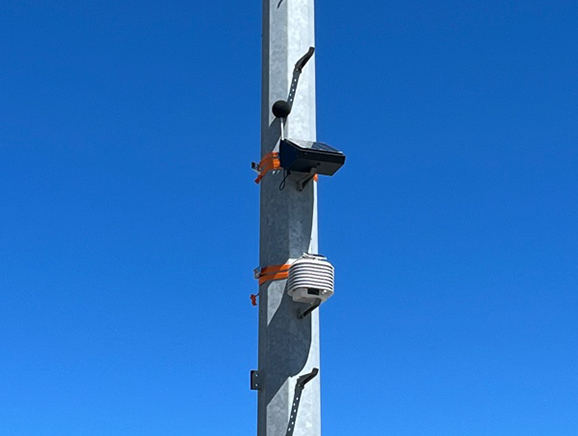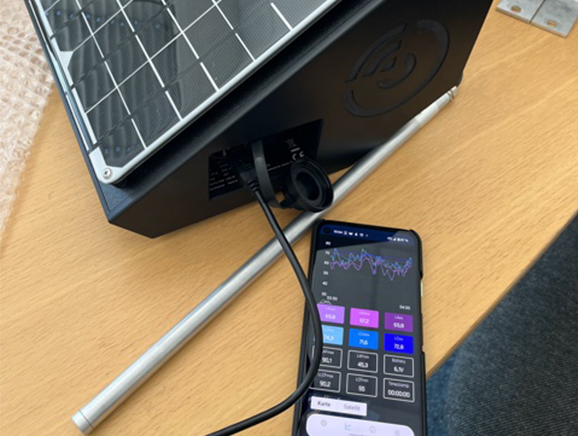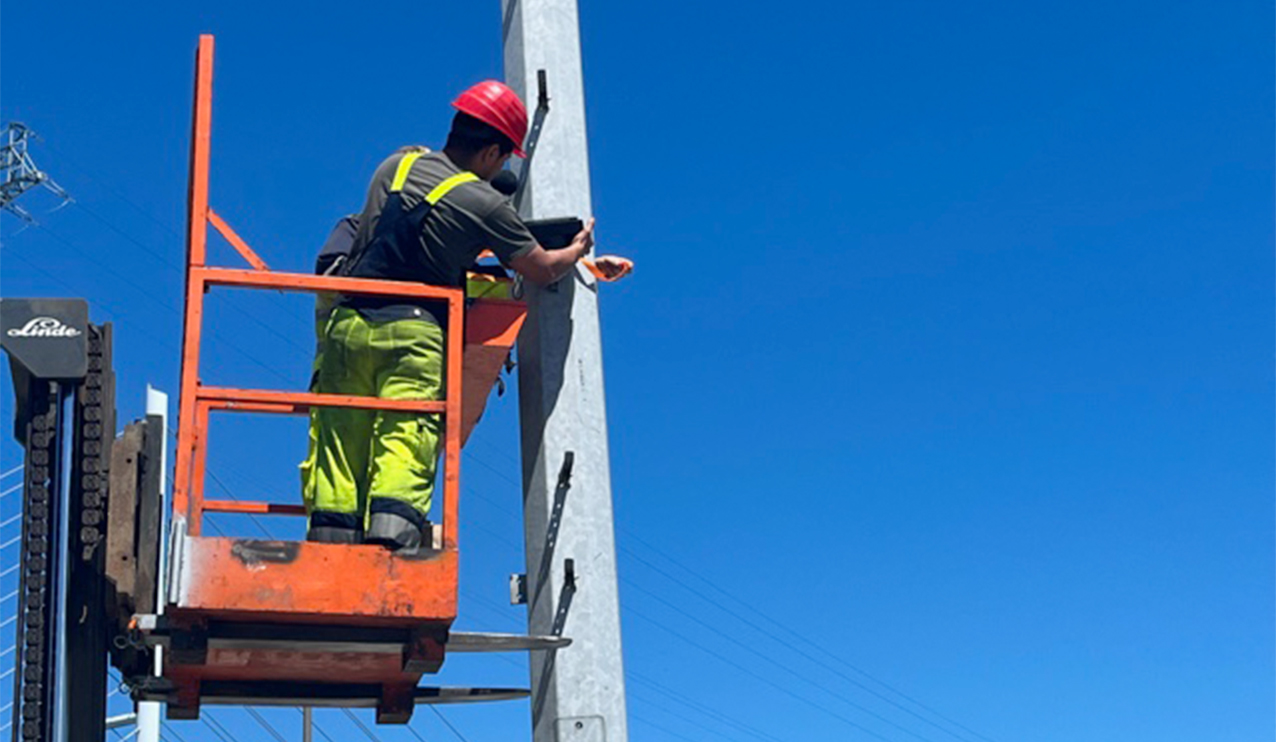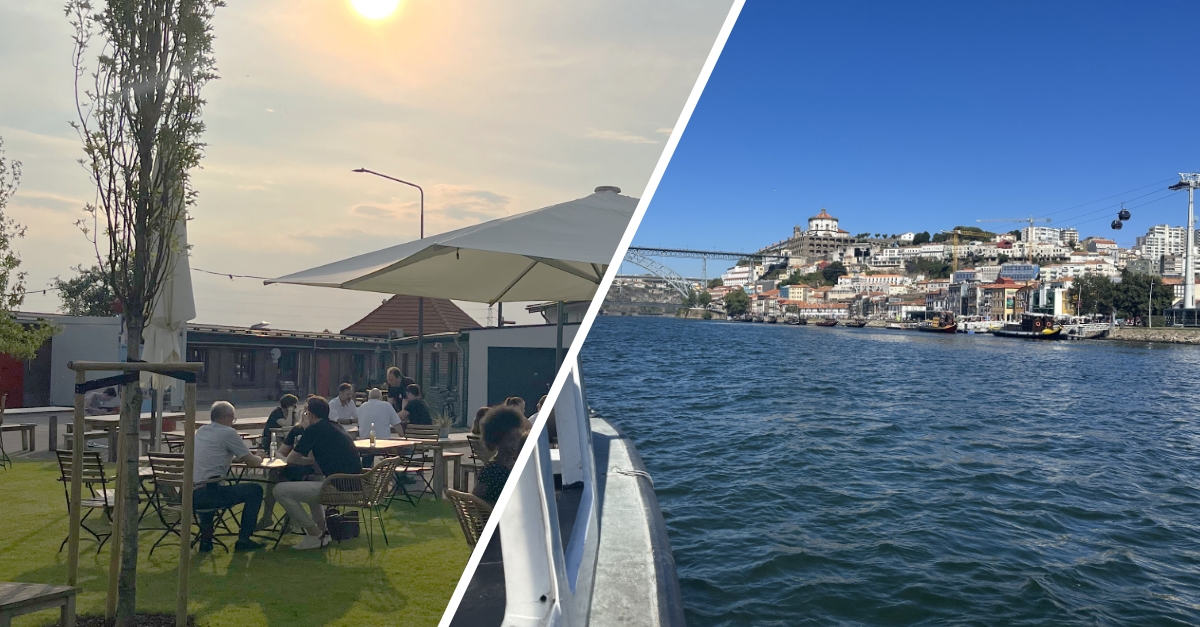With COCUS as a digitization partner, an initial pilot for the digital collection of environmental data was rolled out at the seaport of Stralsund. With LoRaWan and appropriate sensors, potential impacts of port operations on the environment, surroundings and port employees can now be recorded in a digitalized manner. This is to better assess impacts on the surrounding area and ensure the operation of the seaport close to the city in accordance with national and European requirements.
This is part of the Connect2SmallPorts project, which is being implemented jointly with the Seaport of Stralsund and the European Project Center at the University of Wismar. Development, planning and installation as well as the ongoing test phase were already initiated by the Connect2SmallPorts project – partly funded by the INTERREG South Baltic 2014 – 2020 program – at the end of 2021. And with the deployment of the first pilot, LoRaWAN (Long Range Wide Area Network) radio technology is now stably enabling the desired signals and information for environmental data collection and plant maintenance and servicing over a long distance.
Currently, the system at the Stralsund seaport includes four sensors provided by COCUS for the collection of various environmental data. Two of the sensors are DSS volume sensors that will be used to measure volume trends so that the data can be used to find a way to reduce port operations to a noise level that is appropriate for residents. The two other sensors in use are fine dust sensors, which monitor fine dust pollution on the port site and continuously check whether the specifications are being met.
The system can be flexibly expanded to add more sensors in the future and provide the seaport with a variety of options for further measurements.
We are happy to be part of such an exciting project! The first (scientific) evaluations are already expected at the end of this year and will be carried out jointly by the seaport of Wismar and the European Project Center.
This is part of the Connect2SmallPorts project, which is being implemented jointly with the Seaport of Stralsund and the European Project Center at the University of Wismar. Development, planning and installation as well as the ongoing test phase were already initiated by the Connect2SmallPorts project – partly funded by the INTERREG South Baltic 2014 – 2020 program – at the end of 2021. And with the deployment of the first pilot, LoRaWAN (Long Range Wide Area Network) radio technology is now stably enabling the desired signals and information for environmental data collection and plant maintenance and servicing over a long distance.
Currently, the system at the Stralsund seaport includes four sensors provided by COCUS for the collection of various environmental data. Two of the sensors are DSS volume sensors that will be used to measure volume trends so that the data can be used to find a way to reduce port operations to a noise level that is appropriate for residents. The two other sensors in use are fine dust sensors, which monitor fine dust pollution on the port site and continuously check whether the specifications are being met.
The system can be flexibly expanded to add more sensors in the future and provide the seaport with a variety of options for further measurements.
We are happy to be part of such an exciting project! The first (scientific) evaluations are already expected at the end of this year and will be carried out jointly by the seaport of Wismar and the European Project Center.
Impressions of the installation at the seaport of Stralsund




Copyright COCUS



